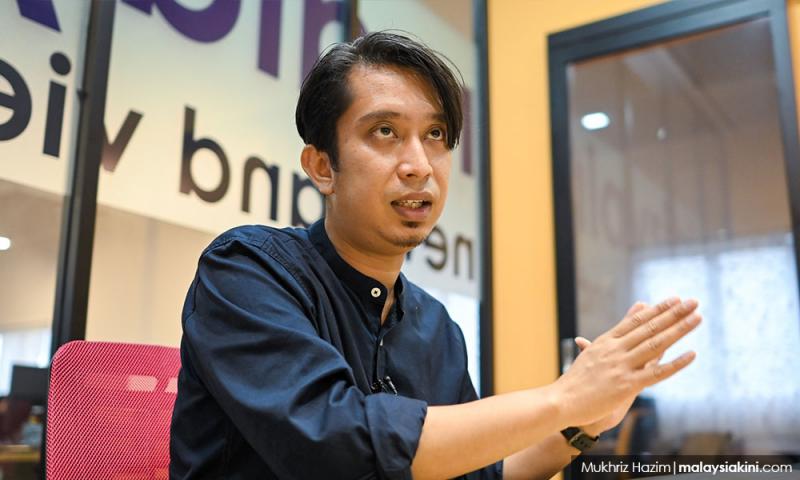
Can’t bank on younger voters being progressive - Adam Adli
INTERVIEW | On Dec 15 last year, the lowering of the voting age to 18 years old and the Automatic Voter Registration (AVR) system came into effect.
This brought the expectation of a “youth tsunami” that would lead Malaysia away from the racialism of parties such as Umno and towards multi-racial parties like PKR.
However, there is also a possibility that youths may follow previous generations in supporting mono-ethnic/mono-religious parties like Umno and PAS.
Despite the overall spike in youth voters, Election Commission (EC) data showed that voters aged between 18 and 20 only represented less than 5 percent of all voters.
The Johor snap polls earlier this year was the first litmus test for this hypothesis.
In its aftermath emerged a strengthened Perikatan Nasional (PN) among youth voters, an erosion of support for Pakatan Harapan among those who voted for the coalition in 2018, less partisan loyalty among younger voters, dissatisfaction of the youth with Harapan, and Umno/BN’s persevering reliance on the support of older voters.
Navigating through the ‘Undi18 wave’
With this increasing uncertainty in the political landscape, Malaysiakini asked the newly-elected PKR Youth chief Adam Adli Abdul Halim how his party plans to navigate the rough tides that lay ahead in the forthcoming 15th general election.
Adam said that it was important to stick to the party’s principles, spread its message and raise awareness.
“It is up to us to make sure that we can move forward and move on from the racial politics (and) identity politics.
“The problem with Undi18, based at least on the Johor election, (is) that we used to have this kind of belief where all younger voters will automatically vote progressively,” Adam said.
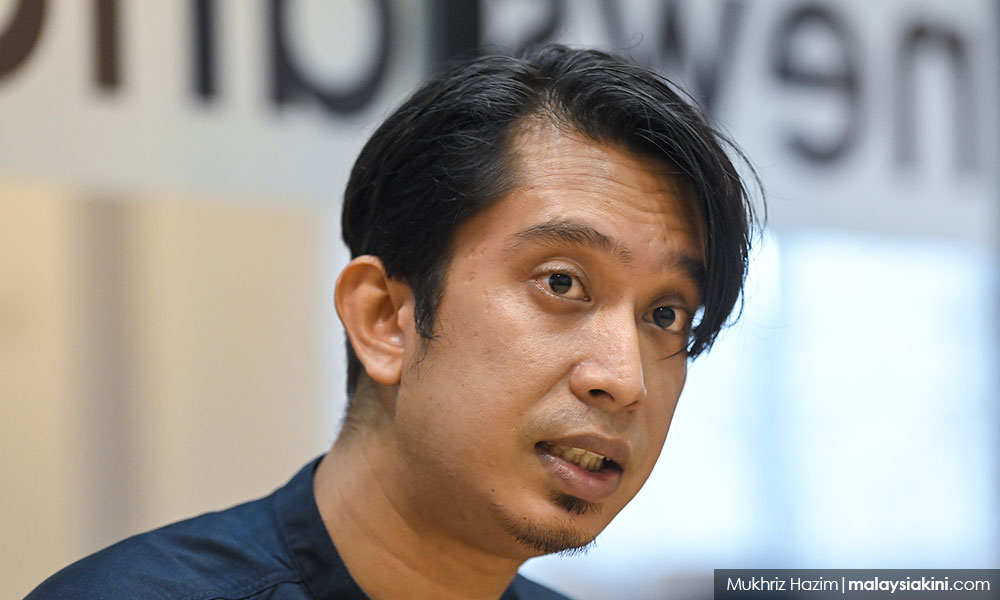
He argued that the increase in new voters does not simply cover urban areas but also rural areas as well, where voting trends will likely remain unchanged.
Adam, 32, said that socialisation in schools, neighbourhoods and families holds a major influence on one’s political education.
“(The youth’s political views are) not necessarily what they see on social media, but rather, what they discuss with their family, what their teachers told them in school, and what their friends and neighbours will talk about every day.
“It’s not surprising to see how the voting trend will not be how we anticipated it earlier.
“We cannot simply expect (young people to vote progressively), because young age would never guarantee innovation or progressiveness,” Adam added, emphasising that PKR must work hard against such naive assumptions.
Relationship with Muda
With newcomers Muda fresh on the scene, some say that PKR and Muda are likely to clash in the future over the same “mixed” seats.
This was evident in the Johor polls in March, where PKR and Muda’s attempt at cooperation ran into a stumbling block over the state seat of Larkin.
The newly minted party youth chief admitted that this was a challenge as both parties drew on similar voter demographics.
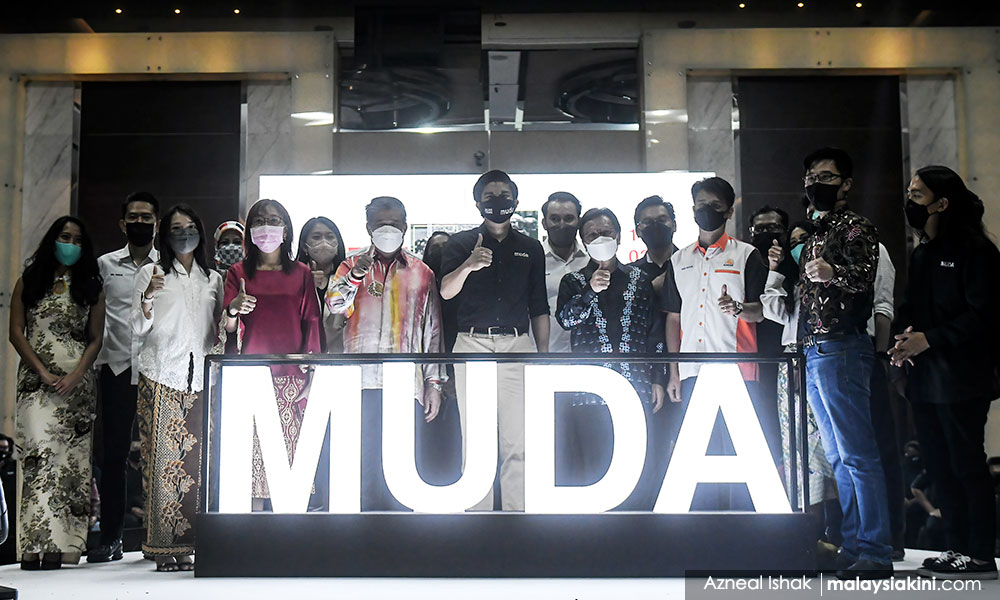
“Let’s be honest, Muda shares the same demographic as PKR. There will always be competition between Muda and PKR - a lot stronger compared to other parties.
“A lot of Muda’s current leadership would (also) come from the same background as mine,” Adam said.
He said that he also had a close friendship with Muda’s former secretary-general Amir Hadi and respected Muda leader Syed Saddiq Abdul Rahman’s abilities as a politician.
“It’s very interesting how we’re going to prove that each of us is better so that we can win over the same demographic.
“I've never been hostile (to Muda) out of respect. I think as long as it’s healthy, competition is good,” Adam added.
Educating the masses
Ahead of GE15, the PKR Youth wing is gearing up for all eventualities.
Adam raised a proposed idea within PKR Youth that there should be at least 30 core members trained and empowered to represent the party, especially during the forthcoming GE15.
However, the newly minted youth chief clarified that the proposal was still in the works.
Adam spoke of the need to be accommodative in PKR’s political messaging in order to reach a wider range of groups.
“We have to be accommodative enough that we are able to understand and translate our agendas into a language that can be understood and appreciated by different sectors of our society.
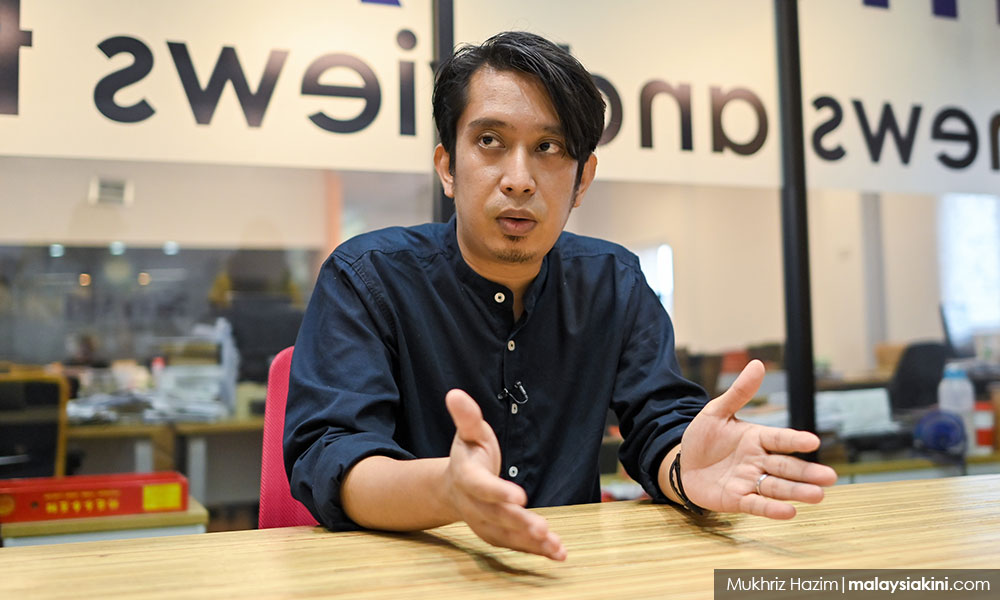
“I mean, there’s no such thing as a one size fits all (solution), for the problems of the people in Johor will not be the same as that of those in Kedah. The problems of people in Kuala Lumpur will not be the same as in Kota Kinabalu.
“So, we have to be able to understand and to listen more to the people from the ground,” said Adam, adding that PKR already had the structure to do so in the form of its 222 branches.
He felt that it would be helpful to look back on previous outreach initiatives.
“Bring back the old ceramah, bring back the leafleting, flyers, posters, start exploring local narratives again, start understanding the current trends, not just in order to follow the trend.
“How can we try to create another trend by learning how the established trends happened in the first place?” he said.
Political influences
Adam is no stranger to listening to the voices on the ground.
As an Education (TESL) student at Universiti Pendidikan Sultan Idris (UPSI), Adam’s first rally was the Air Untuk Rakyat rally held in Kuala Lumpur on Dec 5, 2010, and he has since faced sedition charges and numerous arrests.
However, the former student activist told Malaysiakini that his earliest exposure came through his family's political discussions, as well as the Reformasi movement.
His father, who was a Keretapi Tanah Melayu Berhad (KTMB) employee, was deeply involved in the workers’ union.
“My father used to attend the protests every week. There’s a strong political culture (in) my neighbourhood. Basically, it derives from the culture of workers, KTMB workers.
“That’s the kind of childhood that I had. When I went to school in Brickfields, it felt like the same thing. Teachers were very political, so the influence had always been there,” Adam said.
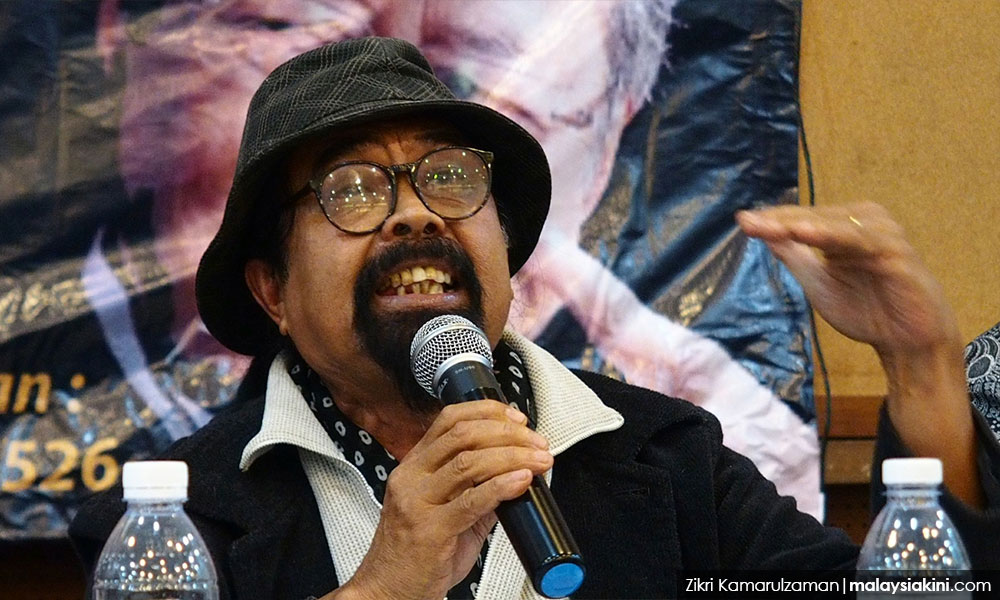 Hishamuddin Rais
Hishamuddin RaisBefore his return to his home state of Penang, Adam grew up in the KTMB flats in Bangsar Utama.
As a result, he was always in close proximity to the former stomping grounds of the country’s top political thinkers, writers and activists.
This included the likes of Khairul Anuar Ahmad Zainuddin (better known as Jonah), Fathi Aris Othman and Ahmad Luthfi Othman, among others.
“If anyone asks which political school I went to, I would proudly say I’m from Kelab Bangsar Utama,” said Adam.
Kelab Bangsar Utama (better known as Universiti Bangsar Utama) began as a pioneer student group during the Reformasi period in Malaysia, which began in 1998.
The UBU had successfully organised community projects, including providing free tuition to poor students around Bangsar-Pantai Dalam, film screenings, workshops and soup kitchens, among other initiatives.
Adam said that he considers himself as being part of the last generation of the Universiti Bangsar Utama group.
Asked what drives him as an individual, the PKR youth chief said that it was emotion at the heart, as well as the many unresolved issues seen in the nation.
RELATED STORY: Adam Adli: We're down but now's not the time to give up
Many younger voters are, in fact, even more invested in the Race and Religion Supremacist doctrine.
ReplyDeleteThey have known nothing else, and cannot imagine nor accept a Malaysia built on any other basis.